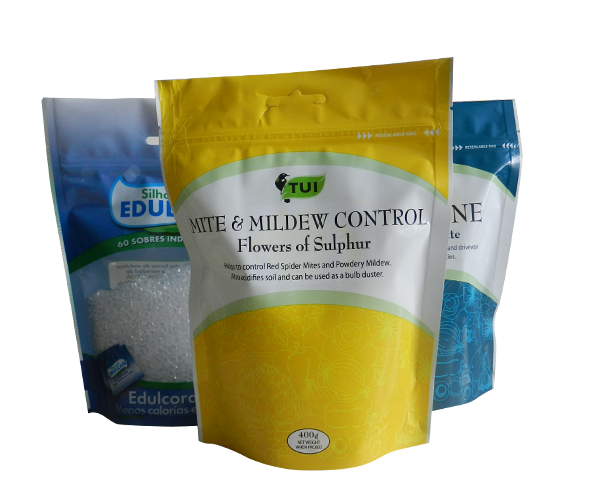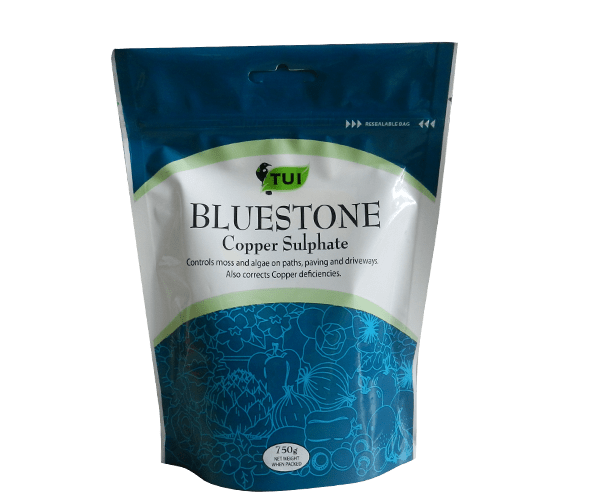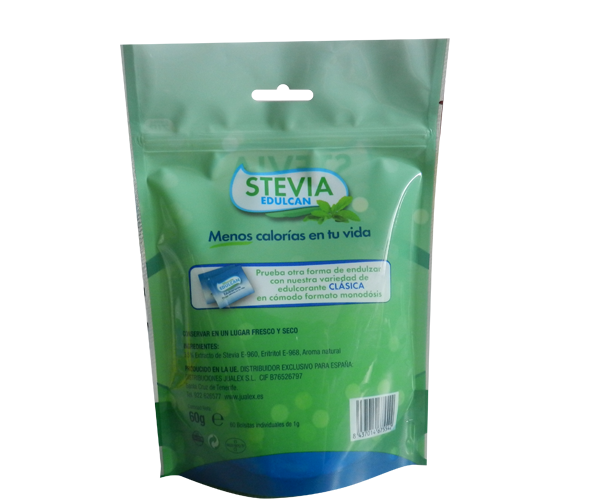Stand-up bags offer advantages for customers, retailers, brands, and the converters that create them.
Flexible packaging services have been offered for a number of years, however, technology is allowing the industry to develop better functional solutions. Today, the market is seeing significant growth with film-faced pouches. These flexible packaging services are able to efficiently communicate a brand message, address environmental problems, and increase the bottom line.

Packaging engineers are always searching for solutions that ideal fit their application, and when making their product selection they are guided by three elements:
Branding: Does it maintain or elevate the look, feel, and image of a brand?
Containment: Does the product packaging have the mechanical properties needed to hold the item? If needed, is it puncture-proof? Does it have enough of a water or oxygen barrier or chemical resistance to protect the product?
Converting: How will the package print and how will it run for the co-packer?
All of these factors play into the framework of what a consumer needs for a packaging service. Getting the right information paired with new advancements helps to provide the best service.
Sustainability
More brands are moving toward sustainable packaging so that they can meet consumer demand, stay ahead of policies, and be environmentally conscious, particularly when it comes to single-use packaging.
Stand-up pouches are a fast-growing format within the flexible packaging field. They aren’t just easier for consumers and produce more billboard space for brands, they require less energy to produce and the carbon footprint is lower than that of a rigid container. As an example, think about the number of rigid style containers that can be shipped compared to flexible pouches on a truck.
Converters can also see an environmental advantage. Along with having polyester (PET) facestocks on labels, pouches enable fewer packaging components than alternative methods, and they provide a bonus: less work to package an item. No inventory of plastic bottles, lids, seals, etc. With stand-up pouches, co-packers can position a roll of a printed laminated framework on the packaging line and extremely quickly create a finished product ready to go on the shelf, at a lower price to market.

Containment
The containment topic begins with functionality. Can the package be formatted for different forms; can you position a zipper on it? Is it puncture-proof? Creating frameworks that have actually simple tear-offs made to open the container much easier is a must. Consumers also desire a resealable package that is easy to store, and retailers want much better product awareness with 360 degrees of billboard space for branding. Combining that with wanting to preserve the product, the solution comes down to marrying the application and ingredients to the framework.
But the latest innovations for containment are on the inside. The complete framework of flexible packaging includes the following:
The Outside, with graphics, from a matte to shiny metallic, for shelf appeal.
The Barrier (or the capability) to protect the contents from the inside out and the outside in. It can be a standalone part or, in simpler structures, it can be part of the sealant film, adhesive, or extrusion layer. This all depends on how complex the structure is. In one example for snacks, nitrogen gas is used to flush out the oxygen and keep the item from going stale. These barriers are in the film used to make the frameworks. Other products requiring a high moisture barrier will likely have a layer specifically created to protect from moisture intake or exhaling.
The Sealant, which offers the bond strength for the package, can also offer barrier protection in its functionality.
Still, some laminations also supply built-in chemical resistance. These varied packaging structures offer services for more challenging hard-to-hold contents faced by narrow web converters, such as industrial cleaning products, or wellness and beauty items like essential oils or pain relief creams. The demand for higher barrier constructions and chemical resistance while supporting ease of the procedure and lower complete used cost is just beginning. Improved high-barrier laminations enable industrial, automotive, and beauty care products to move into flexible packaging.

Adaptable to Digital Printing
Digital printing has grown over the last few years, driven by industry demands for shorter runs, more personalized packaging, higher sustainability, and the need to help items stand out even more. Digital printing provides consumer goods companies the ability to apply high-impact graphics for maximum branding and shelf appeal. As consumers continue to search for much better experiences, digital printing can help by offering customization on a large or little scale. The branding is consistent on each package, but each impression can be slightly different and unique, offering customized packaging with names or other individual aspects. Sunkeypackaging offers a wide breadth of items to satisfy the digital demands including short run, varied applications, and quick turnaround.
The technology cycle, the development of equipment, and material science offer solutions to growth trends that ultimately satisfy the demands of the customers. In terms of flexible packaging, it’s truly about functionality and working to provide the latest advancements to clients.
